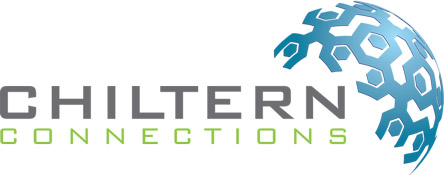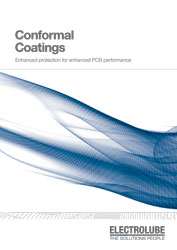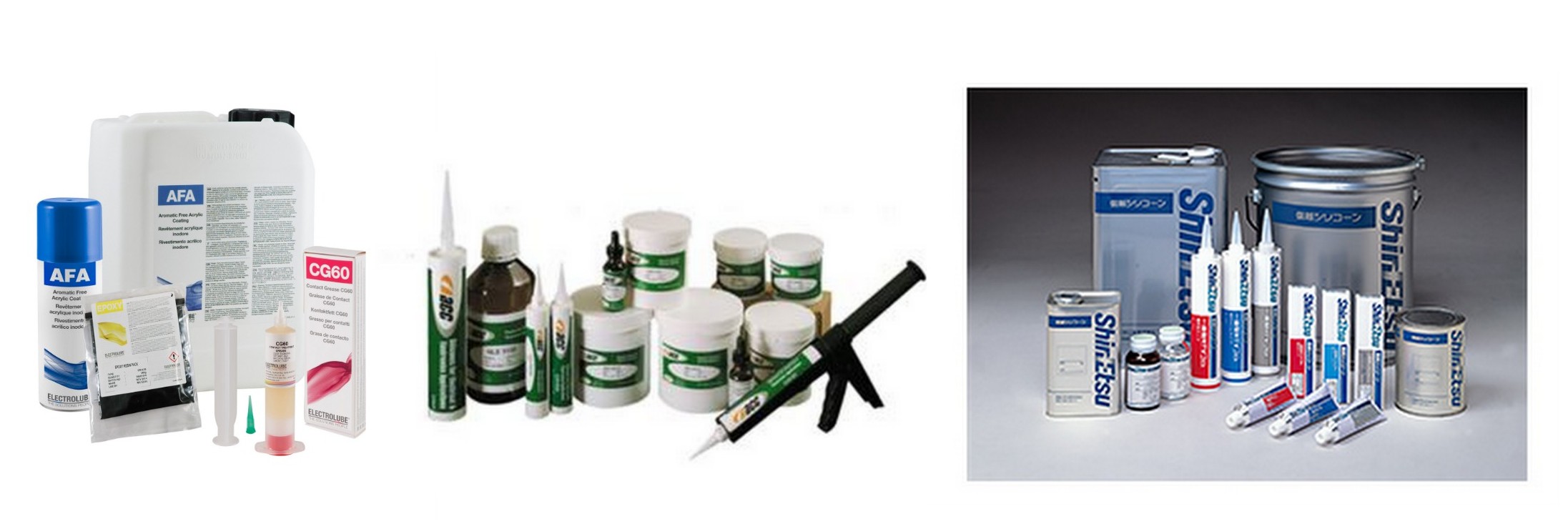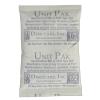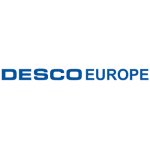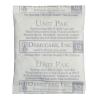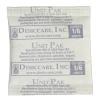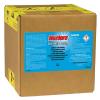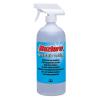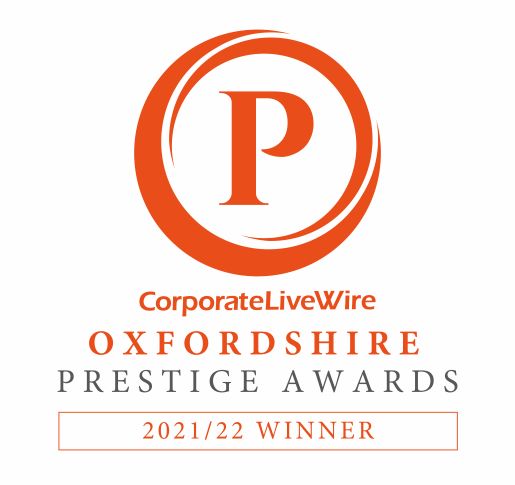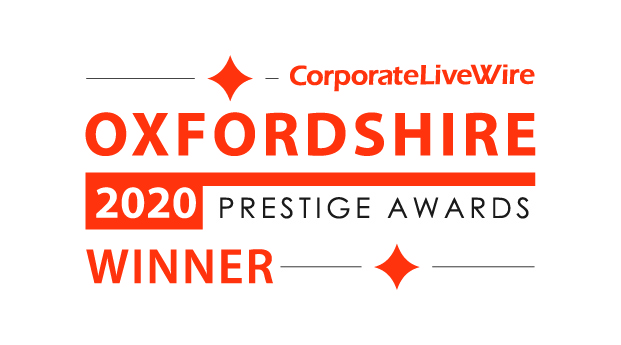CONFORMAL COATINGS
Improving the Performance and Working Life of PCBs.
Chiltern Connections provide a range of conformal coating manufactured by Electrolube, ACC Silicones and Shin-Etsu consisting of:
- • UL, MIL and IPC-CC-830 Approved
- • Solvent removable and solvent resistant coatings
- • UV Trace
- • Thinners and Removers
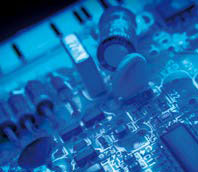
Find our more about conformal coating:
What Is Conformal Coating?
Conformal coating is a protective film of typically 25-75µm thick applied to printed circuit boards to protect against environmental contamination and damage which conforms to the shape of the populated PCB. With electronic systems being used in many different environments where there are chances of chemical contamination such as fuels, coolants, cleaning fluids, and moisture such as in high humidity atmospheres or electronics exposed to salt spray - complex and costly PCBs need to be protected.
Types of Conformal Coating
There are a number of different conformal coatings to suit the different environments PCBs are required to operate in. Chiltern Connections supplies the following coatings to the automotive, military, aerospace, marine, lighting, industrial, energy, domestic and wearable technology industries:
•
- > Provide good pricing with a good all round protection.
- > Offer excellent humidity & salt mist protection.
- > Easy to apply, remove and dry quickly at room temperature.
- > Wide operating temperature range.
- > Excellent adhesion to a variety of substrates.
•
- > Provide Outstanding protection in harsh environments.
- > Offer Excellent chemical and abrasion resistance.
- > Maintain flexibility even at low temperatures.
- > Wide operating temperature range.
•
- > Flexible conformal coatings
- > Provide excellent protection against moisture and corrosion
- > Protection against thermal and vibrational shock
- > Ideal for high-temperature environments
- > Insulate electronic components in a range of applications and industries
•
- > Reduces solvent use; improves operator and environmental safety
- > Electrolube products are NMP free; again offering a safer product
- > Electrolube products are hybrid products offering enhanced performance
- > Can be applied using standard equipment; dipping and spray versions available
- > Can offer a good level of chemical resistance
•
- > Are highly flexible
- > Low stress on components
- > Provide excellent salt mist and condensation resistance
- > Good operating temperatures
- > Ideal for automotive applications
•
- > Extremely fast process times
- > Secondary moisture cure system used to help shadow areas cure
- > Good protection in a range of environments
- > Excellent chemical resistance
- > Dual cure systems
Application Methods
Conformal coatings can be applied either manually or automatic. The method used is dependent on the coating and volume of PCB's processed.
The different methods of applying conformal coating and the volumes of PCBs that are typically processed with each method are shown below:
| Type | Volume of PCBs | ||||
|---|---|---|---|---|---|
| Method | Automated | Manual | Low | Medium | High |
| Brushing | N |
Y | Y | N | N |
| Spraying | N | Y | Y | Y | Y |
| Dipping | Y | Y | Y |
Y |
Y |
| Selective Coating | Y | N | N | Y | Y |
| Aerosol | N | Y | Y | N | N |
Curing Methods
Evaporation Cure
Solvent based conformal coatings cure by solvent evaporation over a period of time (typically around 24 hours) dependent on the thickness of the coating. The thicker the coating the longer it will take the solvents to evaporate.
Heat Cure
The cure process of solvent based coatings can be accelerated using a heat source set to specific temperatures and lengths of time (dependent on the conformal coating type). For Acrylic coatings the heat cure process only accelerates the process, and will not change the protective qualities of the coatings. For other coatings however, the heating of the coating can affect the protective qualities, so this is a factor to consider before applying a heat source.
Coating Standards
Conformal coatings need to pass specific tests in order to be used in environments such as Automotive or Military applications.
The different conformal coating standards are as follows:
IPC-CC-830B
This standard was intended to be a replacement of MIL-I-46058C when it became inactive for new designs in 1998. The specification mirrors many of the performance and acceptance criteria, including the test methods as laid out in the MIL-I-46058C, therefore, all materials qualified to MIL-I-46058C automatically meet the requirements of IPC-CC-830B.
MIL-I-46058C
Military Insulating Compound has been inactive for new designs since 1998, however it is a standard still required by many military consultants.
Def Stan 59/47
This standard is the UK Ministry of Defence standard, used by the British military on high end electronics
What can we do for you?
At Chiltern Connections we advise customers in the automotive, defence, marine, lighting & LED, renewable energy and wearable technologies industries of the most suitable conformal
coatings for their particular application. In addition, we provide in-house sub-contracting coating services at our state of the art coating facilities applying their required coatings.
To find out which coating would best suit your needs, most effective application method and cost, Contact Us or call 01491824788 where we can provide you with the solution.
